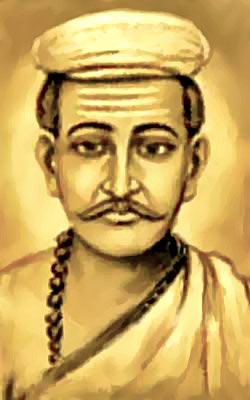 Vidyapati Thakur was also known by the sobriquet Maithil Kavi Kokil. He was born in Madhubani district of Bihar. His poetry was influential. He wrote at a time when the early versions of the Eastern languages like Bengali, Oriya and Maithili were in their nascent stage. Vidyapati is known for his poetry dedicated to Lord Shiva. The language he wrote was closest to Maithili, the language spoken around Mithila region.
Vidyapati Thakur was also known by the sobriquet Maithil Kavi Kokil. He was born in Madhubani district of Bihar. His poetry was influential. He wrote at a time when the early versions of the Eastern languages like Bengali, Oriya and Maithili were in their nascent stage. Vidyapati is known for his poetry dedicated to Lord Shiva. The language he wrote was closest to Maithili, the language spoken around Mithila region.
Vidyapati`s love lyrics describe the sensuous love story of Radha and Lord Krishna. This is followed by several poems on Vaishnava themes which were popular in Eastern India. Vidyapati has also written on other topics including ethics, history, geography, and law. His works include Purusa Pariksa, Likhanabali, Bhu-Parikrama,Vibhagasara, Danavakyavali ,Gangavakyavali, Varsakrtya, Durgabhaktitarangini, Saivasarvasvahara,
Kirttipataka and Kirttilata
Vidyapati`s works have influenced the Bengali poets of the medieval period. The poets imitated it and as a result, an artificial literary language, known as Brajabuli was developed.
Vidyapati`s also influenced Oriya Literature. The earliest composition in Brajabuli language was by Ramananda Raya. Other Oriya poets who were influenced by his poems were Champati Ray and King Pratap Malla Dev.
This article is a stub. You can enrich by adding more information to it. Send your Write Up to content@indianetzone.com













